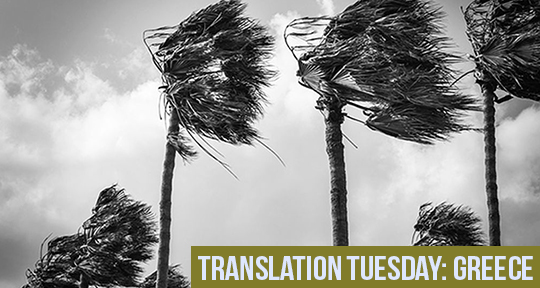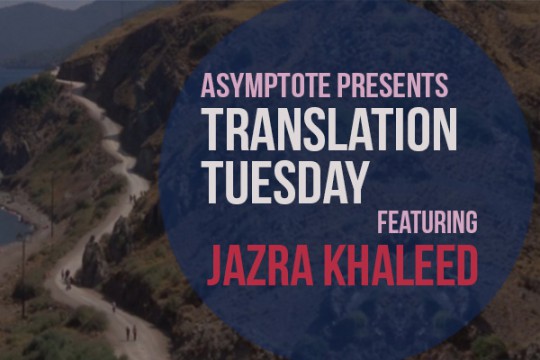In this sobering poem, Chechnya-born Greek poet Jazra Khaleed vividly depicts a war “so trite and pedestrian, filled with similes and ornate adjectives, its history is written in the font Comic Sans.” For most of us in the settled world unable to imagine what it is that Syrian refugees go through, these words encompass a different but now less unknowable spectrum of the human experience.
The War is Coming
For Ghayath al-Madhoun
and his million Arab poets
1.
I decided to leave Syria the day a stray bullet passed in front of my eyes. That day I realized my homeland was not my homeland, my blood not my blood, and my freedom belonged to a freedom fighter who didn’t think to ask my permission before he shot me: a lack of courtesy we encounter often in war time.
2.
If they are going to kill me, better to kill me in a foreign language.
3.
On the road from Damascus to Berlin I met an old soldier from Dara’a who couldn’t carry his nightmares anymore. I wrapped them and put them in my suitcase; at the airport I paid the fine for excess baggage.
4.
Whoever is not afraid to cross the border carries the war on his back.
5.
Swap your best shirt for a bulletproof vest, your poems for the first chapter of the Koran and your house in Athens for a throne atop Mount Aigaleo so you can survey from on high the coming war.
6.
This war is trite and pedestrian, filled with similes and ornate adjectives, its history is written in the font Comic Sans, violence so limitless the war doesn’t know where to put it, one grave for every thousand corpses, one shadow for every thousand survivors, it’s an indelicate war, barrels vomiting explosives, steel cylinders filled with accessories for washing machines and car parts, the death that disseminates is an earthy death, this war is rightfully ours because in it we have buried all our loved ones. READ MORE…


